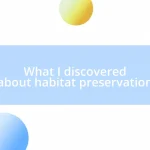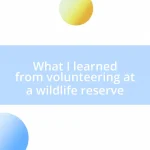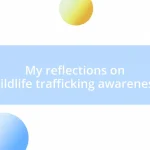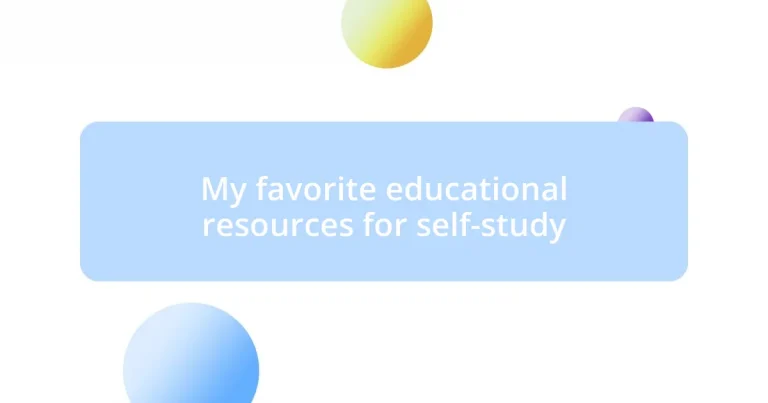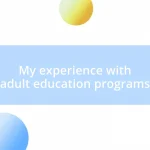Key takeaways:
- Coursera and Khan Academy significantly enhance self-study with flexible, engaging content that breaks down complex topics.
- Various online platforms like Udemy, Skillshare, and edX cater to diverse learning interests, fostering excitement in self-education.
- Mobile apps such as Duolingo and Anki leverage gamification and spaced repetition to improve learning experiences and retention.
- Joining online study communities, such as Reddit and Discord, provides motivation through shared resources and accountability among peers.
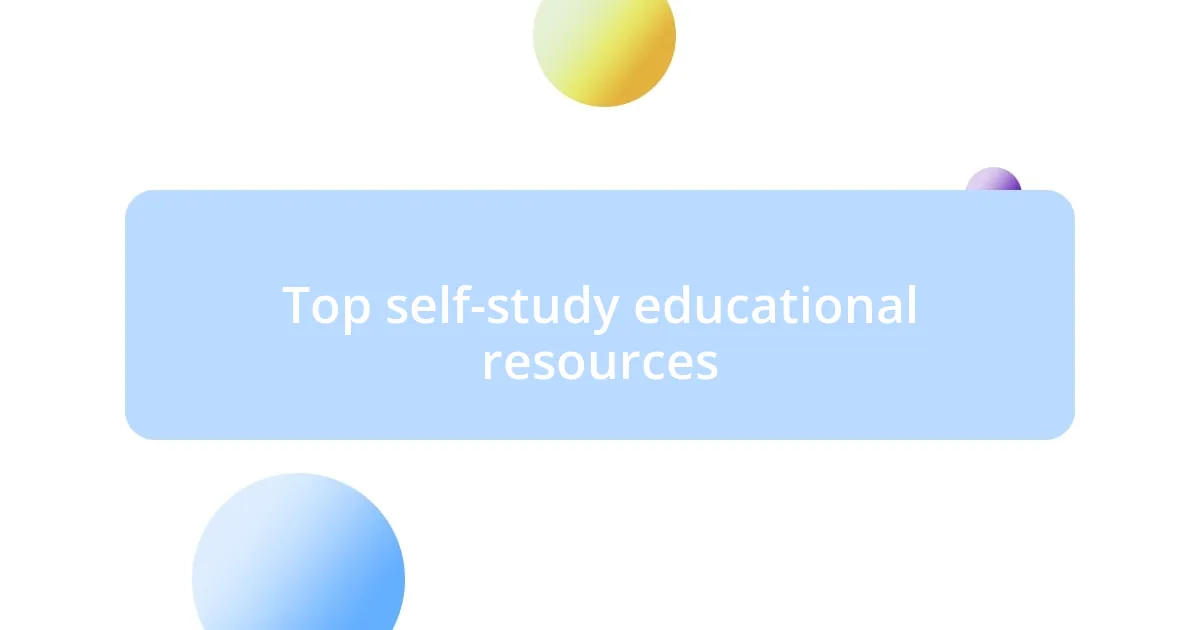
Top self-study educational resources
One of my favorite educational resources for self-study is Coursera. I still remember the first time I enrolled in a course about digital marketing. The flexibility of learning at my own pace was liberating, and I found myself genuinely excited about the material. Don’t you just love it when you can dive into a subject that captivates your interest without the pressure of deadlines?
Another fantastic resource is Khan Academy. I stumbled upon it while searching for help with calculus, and it changed my entire approach to learning. The way they break down complex concepts into digestible pieces was a game-changer for me. Have you ever experienced that moment of clarity when a tough topic suddenly clicks? That feeling is what makes self-study so rewarding.
Lastly, I can’t recommend podcasts enough. I often find myself on long drives, tuning into educational podcasts like “Stuff You Should Know.” The blend of storytelling and information keeps me engaged, and I often find myself reflecting on the topics long after the episode ends. Isn’t it amazing how a simple audio format can turn mundane moments into rich learning experiences?
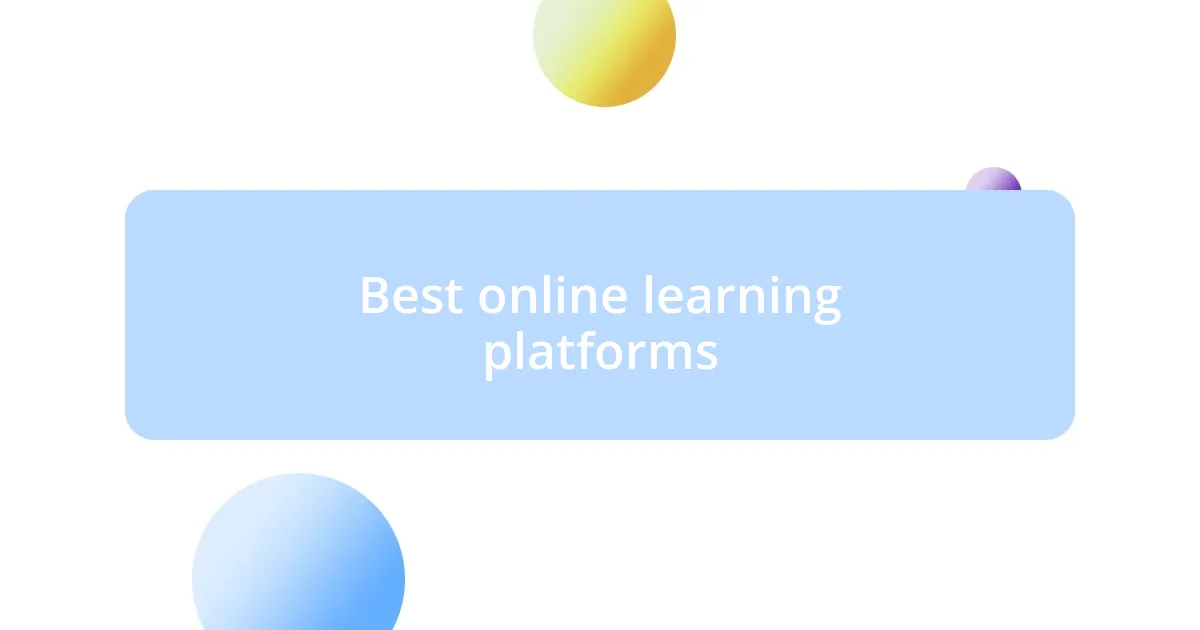
Best online learning platforms
When it comes to the best online learning platforms, I have to highlight Udemy. My first experience was enrolling in a photography course—it was like unlocking a whole new world. The platform’s vast library means there’s always something new to explore. Every time I discover a skill I want to pick up, I feel that excitement bubbling inside, knowing I can learn anytime.
Here are some of my top picks for online learning platforms:
- Udemy: Offers a wide variety of courses across countless subjects, perfect for sparking new interests.
- Skillshare: Focuses on creative skills and has a thriving community of learners and instructors.
- edX: Provides university-level courses, often for free, from prestigious institutions.
- LinkedIn Learning: Great for professional development, merging personal growth with career advancement.
- Pluralsight: Tailored for tech enthusiasts, it’s fantastic for learning programming and software development.
I find that each platform has its unique flavor—there’s something energizing about hopping from one course to another, immersing myself in topics that pique my curiosity. It’s that diversity that adds a refreshing spark to my self-study journey.
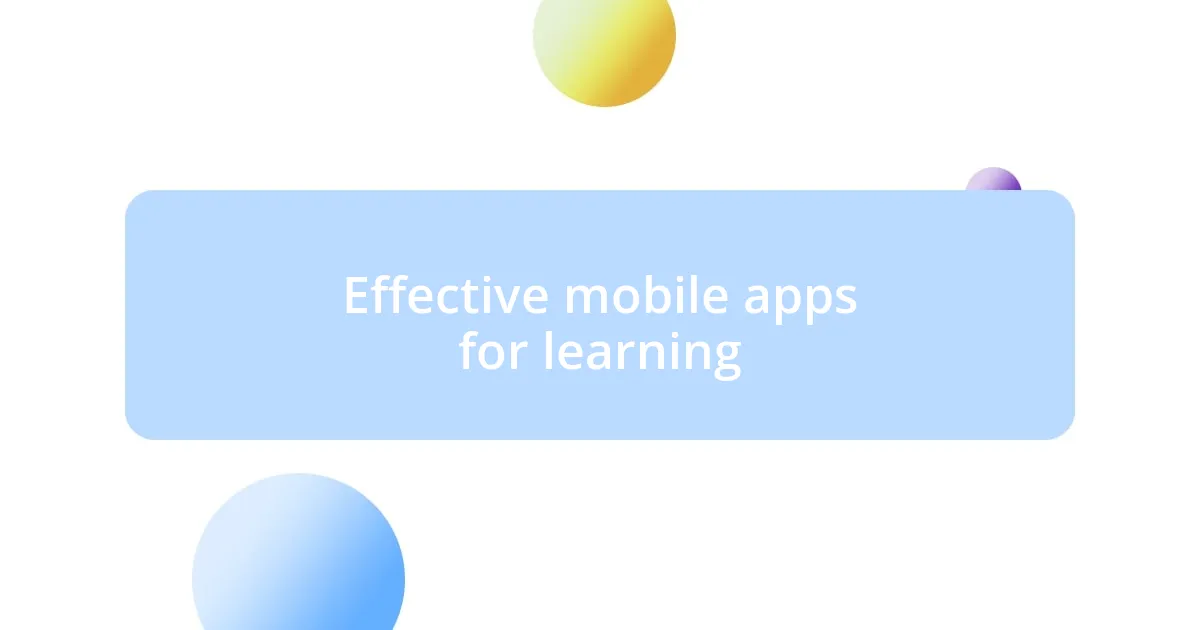
Effective mobile apps for learning
Mobile apps have become indispensable tools in the realm of self-learning. I remember when I first discovered Duolingo while trying to learn a new language. The gamified approach, with its cute owl mascot cheering me on, not only made learning fun but also transformed my study sessions into enjoyable little achievements. Have you noticed how the satisfaction of reaching a new level can motivate you to keep going? It’s a clever tactic that truly engages users.
Another app that changed my learning routine is Khan Academy Kids. Initially designed for younger audiences, I found the interactive content and playful exercises to be beneficial for learning foundational concepts. The colorful animations and engaging activities reminded me that learning doesn’t have to be dry and monotonous. Instead, it can be an adventure inviting us to explore new ideas at any age. After all, who says self-study can’t be a joyful experience?
Lastly, I can’t overlook the power of Anki for memorization. Initially, I struggled with traditional study methods, often feeling overwhelmed by information. Discovering Anki and its spaced repetition feature made all the difference. It helped me master complex topics, turning study marathons into more manageable, bite-sized sessions. It’s fascinating how simple techniques like this can enhance our retention and understanding of information.
| App | Key Features |
|---|---|
| Duolingo | Gamified language learning with bite-sized lessons. |
| Khan Academy Kids | Interactive educational resources for foundational learning. |
| Anki | Flashcards with spaced repetition for effective memorization. |
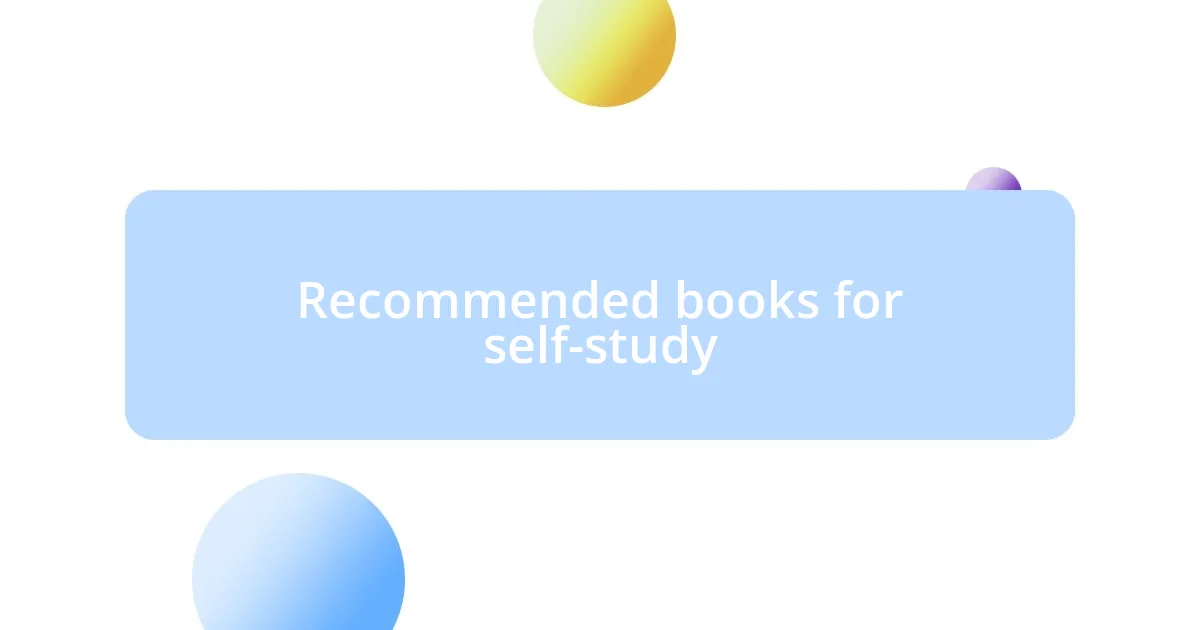
Recommended books for self-study
When I think about my favorite self-study books, “Atomic Habits” by James Clear stands out. It’s more than just a guide on building habits; it’s an exploration of how small, consistent changes can lead to remarkable results. I remember implementing his strategies in my own life and feeling a sense of empowerment as my daily routines transformed into sustainable practices. Have you ever felt the thrill of progress when you stick to a new habit? It’s exhilarating!
Another gem is “The Elements of Style” by William Strunk Jr. and E.B. White. I picked it up during my college years, and it was like having a writing coach in my pocket. Its straightforward rules elevated my writing style, making me appreciate the beauty of clear communication. As someone who enjoys writing, the clarity I gained from this book has positively influenced how I express my thoughts. How often do we underestimate the power of well-crafted sentences?
Lastly, I can’t recommend “Mindset: The New Psychology of Success” by Carol S. Dweck enough. This book opened my eyes to the difference between a fixed mindset and a growth mindset. After reading it, I began to embrace challenges as opportunities for development instead of viewing failures as setbacks. It made me ask myself—what if every obstacle is a chance to learn something new? That perspective shift has been life-changing, allowing me to approach my self-study journey with a sense of curiosity and an eagerness to grow.
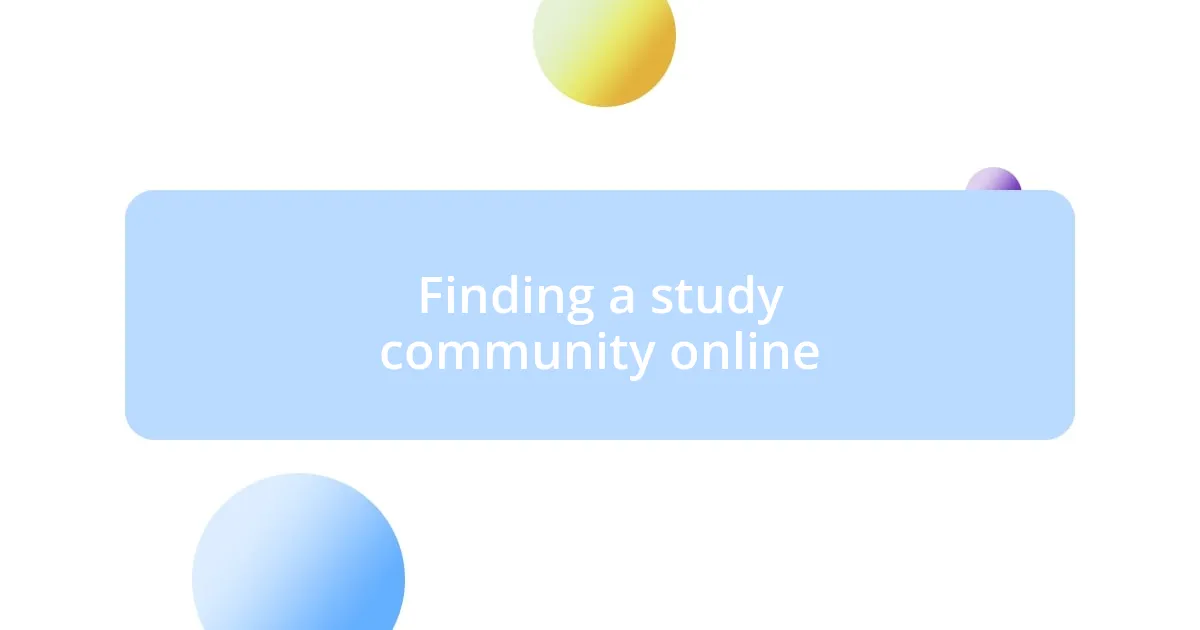
Finding a study community online
Finding a study community online can be a game changer for self-learners. I remember when I first joined an online forum related to my field of study; it felt like opening a door to a treasure trove of knowledge. The instant connection with like-minded individuals who shared their insights and struggles was invigorating. Have you ever felt that rush when you’re part of a community that fuels your passion?
Platforms like Reddit and Discord host vibrant study groups, each with its unique vibe. I discovered a Discord server dedicated to complementary learning, where members posted resources and shared study tips in real time. This not only expanded my knowledge base but also helped me develop lasting friendships with people who genuinely understood my learning journey. It’s fascinating how a virtual space can foster such meaningful connections, isn’t it?
Engaging in study challenges within these communities has significantly amplified my motivation. I once participated in a 30-day reading challenge, where participants shared daily updates and reflections. The accountability was a powerful motivator; I approached the challenge not just as an individual task but as a collective journey with my peers. Can you imagine the satisfaction of not just achieving a personal goal but doing it alongside others who are rooting for your success?

